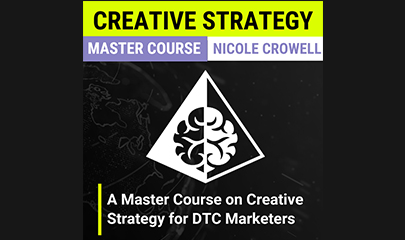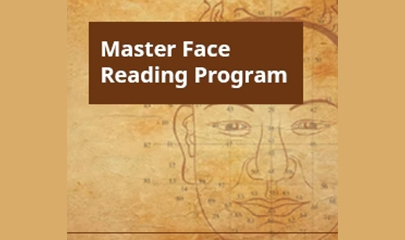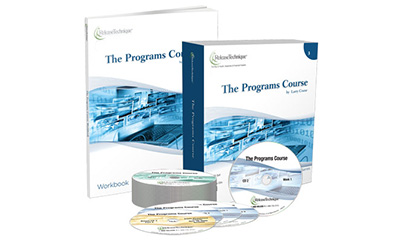-
×
 Association Domination Masterclass By Perry Belcher
1 × $6,00
Association Domination Masterclass By Perry Belcher
1 × $6,00 -
×
 Amazon FBA Mastermind by Helium 10 Elite
1 × $5,00
Amazon FBA Mastermind by Helium 10 Elite
1 × $5,00 -
×
 Swing Trading Using The Wyckoff Method By Wyckoff Analytics
1 × $109,00
Swing Trading Using The Wyckoff Method By Wyckoff Analytics
1 × $109,00 -
×
 The Art of VFX & Graphics for Editors Complete Bundle By Film Editing Pro
1 × $31,00
The Art of VFX & Graphics for Editors Complete Bundle By Film Editing Pro
1 × $31,00 -
×
 The Absolute Power of Blend If By Blake Rudis
1 × $5,00
The Absolute Power of Blend If By Blake Rudis
1 × $5,00 -
×
 3D LUT Profile Lucid Dream by Earth Oliver and Sef McCullough
1 × $8,00
3D LUT Profile Lucid Dream by Earth Oliver and Sef McCullough
1 × $8,00 -
×
 Extended Stays for Landlords By Al Williamson
1 × $419,00
Extended Stays for Landlords By Al Williamson
1 × $419,00 -
×
 Another Look with Frans Lanting By Frans Lanting
1 × $5,00
Another Look with Frans Lanting By Frans Lanting
1 × $5,00
Conversation Mastery: The Art Science Of Great Conversation by Charlie Houpert
$5,00
SKU: KOB.59843W5XWlB
Category: Personal Development
Tags: Charlie Houpert, Conversation Mastery, Great Conversation, Mastery, The Art Science Of Great Conversation
Conversation Mastery: The Art and Science of Great Conversation by Charlie Houpert – Digital Download!
Let’s embark on a thrilling journey to uncover extraordinary insights that ignite your curiosity and transform your understanding
Conversation Mastery: The Art Science Of Great Conversation by Charlie Houpert
Overview

Conversation Mastery: The Art and Science of Great Conversation by Charlie Houpert
In an increasingly interconnected world, the ability to engage in meaningful conversation is more vital than ever. Charlie Houpert’s book, Conversation Mastery: The Art and Science of Great Conversation, captures this idea profoundly. It goes beyond mere chit-chat, transforming the way individuals view conversations, inspiring them to harness their skills for building authentic relationships, enhancing their social lives, and improving professional communication. Houpert delves into the core elements that make conversations impactful, offering readers a roadmap to navigate social interactions more confidently and effectively. His work emphasizes that the quality of our conversations significantly influences the quality of our connections, whether in personal spheres, in the workplace, or while networking. In a culture inundated with digital communication, the process still stands at the heart of human interaction.
As we explore the nuanced art and science of conversation mastery, we will discuss its importance, identify key principles of effective communication, delve into useful techniques, and highlight the impact of these skills in various aspects of life. Whether you’re a professional looking to expand your network, someone aiming to cultivate deeper personal connections, or simply someone wishing to become a more engaging conversationalist, Houpert’s strategies provide invaluable insights. Let’s embark on this journey into the realm of conversation mastery!
Conversation Mastery: The Art Science Of Great Conversation by Charlie Houpert
Understanding conversation mastery
Conversation mastery is not just a collection of tips for making small talk; it is about cultivating an art form that reflects the science of effective communication. At its core, conversation mastery intertwines the understanding of human psychology, interpersonal dynamics, and effective communication techniques to foster deeper connections with others. Just as a sculptor carefully chisels away at a block of marble to reveal a masterpiece, mastering conversation involves continuous practice, reflection, and refinement.
Think of conversation as a dance: it requires rhythm, timing, and a keen awareness of your partner’s movements. Just like two dancers must be in sync to create a graceful performance, successful conversationalists must attune themselves to the verbal and nonverbal cues of their interlocutors. This dance of dialogue creates a dynamic interplay where each participant can express themselves while remaining attuned to the other’s thoughts and feelings. When individuals embrace the art of conversation, they foster understanding, empathy, and rapport, allowing their interactions to flourish.
Consider the importance of clarity and conciseness in effective communication. Just as a beautiful melody can be obscured by discordant notes, a message can get tangled in unnecessary jargon or complex phrases. The best conversationalists know how to distill their thoughts, conveying them in clear and straightforward language. This elegance in expression not only enhances understanding but also fosters a more inviting atmosphere for open dialogue.
Emotion plays a pivotal role in conversation mastery as well. Conversations evoke feelings, allowing individuals to connect on a deeper level. When one speaks with genuine enthusiasm or compassion, it radiates warmth, fostering deeper connections. By incorporating emotional intelligence into conversations, individuals can better navigate the complexities of human interactions and build lasting relationships.
Ultimately, mastery in conversation is an ongoing journey one that requires practice, empathy, and a willingness to learn from each encounter. As we delve deeper into this exploration, we will uncover the essential principles, skills, and techniques that contribute to becoming a truly effective conversationalist.
Importance of conversational skills
Conversational skills are foundational components of interpersonal communication, shaping how we connect with others. The importance of these skills extends beyond mere social pleasantries; they have profound implications for personal and professional development.
- Building Trust and Rapport: Effective conversational skills help establish trust, an essential element in any relationship. When individuals engage in meaningful dialogue, they communicate respect and value for each other’s perspectives, paving the way for strong connections.
- Enhancing Communication Skills: The art of conversation sharpens both speaking and listening abilities. Engaging in dialogue enhances our capacity to articulate thoughts clearly and respond thoughtfully, enabling smoother exchanges.
- Cultural Understanding: Mastery of conversation allows individuals to navigate cultural nuances effectively. Engaging diverse speakers promotes exposure to various customs and traditions, fostering inclusivity and broadening one’s worldview.
- Networking Opportunities: Strong conversational skills are invaluable for establishing professional connections. Thoughtful interactions can lead to fruitful relationships that may open doors to job opportunities and career advancement.
- Confidence Building: Regular practice reinforces self-assurance in social situations. The more one engages in conversations, the more comfortable they become, laying the groundwork for increased confidence in diverse environments.
Acquiring and refining conversational skills equips individuals with the tools to navigate the intricate landscape of human interactions. As one becomes more adept at conversing, the benefits permeate all facets of life, promoting personal fulfillment, professional success, and enriched relationships.
Key principles of effective communication
Effective communication hinges on several key principles that help facilitate meaningful exchanges. Incorporating these principles can elevate mere exchanges into impactful interactions that foster understanding and connection.
- Clarity and Conciseness: Successful communicators often prioritize clarity, ensuring that their messages are easily understood. By using straightforward language and avoiding jargon, individuals can minimize the risk of misunderstandings, enabling smoother conversations.
- Active Listening: At the heart of conversation mastery lies active listening a skill that involves being fully present and engaged. This means not only hearing the words spoken but understanding feelings and intentions behind them. Active listeners validate the speaker’s thoughts, demonstrating genuine interest and improving the quality of the exchange.
- Empathy: Incorporating empathy into conversations helps create a supportive atmosphere. By acknowledging and valuing others’ perspectives, individuals can foster a sense of connection, enhancing the likelihood of productive discourse.
- Non-verbal Communication: Understanding body language, facial expressions, and tone of voice is crucial for effective communication. Strong alignment between verbal and nonverbal cues contributes to a unified message, ensuring that the intended communication is received accurately.
- Feedback: Effective communication is a two-way street. Inviting and offering feedback ensures that messages are received and understood correctly. Constructive feedback fosters growth, allowing communicators to refine their skills and encourage improvement in others.
By adhering to these principles, individuals can significantly enhance their conversational effectiveness. Each interaction becomes an opportunity for connection rather than a mere exchange of words, fostering an environment conducive to growth, understanding, and collaboration.
Techniques for effective conversations
To transform dialogue into an art form, it is essential to learn and implement techniques that can significantly enhance the effectiveness of conversations. Here are some critical methods:
- Open-ended Questions: When aiming to foster deeper exchanges, using open-ended questions is vital. Instead of asking questions that elicit simple “yes” or “no” answers, try prompts that invite elaboration, such as “What inspired you to pursue your career path?” This technique encourages the speaker to share more, leading to richer dialogues.
- Practice Empathy and Validation: Engage with the speaker’s emotions, showing genuine understanding and validating their feelings. Phrases like “That sounds really challenging” can build rapport and affirm the speaker’s experiences, contributing to a more meaningful conversation.
- Be Mindful of Cultural Differences: Understanding and respecting cultural nuances in conversation helps avoid miscommunication. When conversing with someone from a different cultural background, adapting your language and approach demonstrates sensitivity and an inclusive attitude.
- Establish Common Ground: Finding shared interests early in a conversation can create strong connections. Highlighting mutual experiences or beliefs can foster a sense of belonging and relatability, allowing for more productive discussions.
- Adapt Communication Styles: Tailor your communication style to fit the audience and context. Consider factors such as the setting and the personality of the conversation partner. Being flexible increases the likelihood of effective engagement.
- Use Storytelling: Incorporating storytelling into conversations can make content more relatable and memorable. Personal anecdotes or illustrative examples can engage listeners, fostering a deeper connection.
Implementing these techniques will facilitate more profound and engaging conversations, transforming everyday interactions into opportunities for connection and understanding. Mastering these elements elevates conversational skills, allowing for meaningful exchanges in various contexts.
Asking meaningful questions
One of the most impactful techniques in conversation mastery involves the strategic use of meaningful questions. Particularly, questioning serves not merely to gather information but to create a deeper connection and foster understanding between speakers. Here are effective ways to ask meaningful questions:
- Open-ended Questions: This technique encourages expansive responses rather than limiting the conversation. For example, instead of asking, “Did you enjoy your trip?” you could ask, “What was the most memorable part of your trip?” which invites the speaker to share richer experiences.
- Follow-Up Questions: Building on initial responses with follow-up questions demonstrates interest and allows for deeper exploration of topics. Engaging more deeply helps maintain the conversation’s momentum and shows that you are actively engaged.
- Clarifying Questions: When you encounter something unclear, asking clarifying questions helps ensure comprehensive understanding. For instance, “Can you elaborate on what you meant by that?” indicates you value the speaker’s insights.
- Empathetic Questions: Approaching sensitive topics with empathy creates a supportive environment. Phrasing questions like, “How did that situation make you feel?” lets the speaker know they are free to express their emotions without judgment.
- Reflective Questions: Reflecting back what someone has said can prompt deeper thought. An example could be, “It sounds like you’re feeling overwhelmed at work. What do you think is causing that?” This approach helps validate their feelings while guiding the conversation further.
By strategically employing these types of questions, individuals can foster richer, more meaningful interactions that deepen the connection and understanding between speakers. Ultimately, asking meaningful questions leads to not only better conversations but also enhanced relationships.
Non-verbal communication techniques
Effective conversation mastery extends beyond spoken words; non-verbal communication plays a critical role in the overall impact of dialogue. Here are essential techniques centered on non-verbal communication that can enhance conversation effectiveness:
- Eye Contact: Maintaining appropriate eye contact is crucial. It signals attentiveness and sincerity, helping to build trust. Avoiding eye contact can convey disinterest or discomfort, while consistent engagement demonstrates your commitment to the conversation.
- Body Language: Open body language such as uncrossed arms and a relaxed posture communicates engagement and willingness to connect. Conversely, closed body language may be perceived as defensive or disengaged, which can hinder effective communication.
- Facial Expressions: Your facial expressions should align with the conversation’s tone. A warm smile during light-hearted discussions fosters a friendly atmosphere, while a concerned look during serious topics reinforces emotional understanding.
- Proximity: Understanding personal space is critical. Adjusting your distance according to the comfort level of your conversation partner fosters a comfortable environment. Being too far can seem disengaged, while being too close may invade personal space, leading to discomfort.
- Gestures: Natural gestures can emphasize points and convey enthusiasm. Use hand motions to illustrate ideas, but ensure they are consistent and not overdone, as excessive gestures can distract from the message.
- Active Listening Cues: Simple gestures like nodding or providing verbal affirmations (e.g., “I see” or “That’s interesting”) can encourage the speaker and validate their feelings. This encourages them to share even more, enhancing the quality of the conversation.
Mastering these non-verbal communication techniques enhances conversational effectiveness, ensuring that your message is not only heard but also felt. When verbal and non-verbal cues align, conversations become more authentic, leading to more enriching interactions and building stronger connections.
Overcoming barriers in conversation
Navigating the landscape of conversations often involves navigating barriers that can hinder effective communication. Understanding these challenges is essential for enhancing conversational mastery. Here are some barriers and strategies to overcome them:
- Understanding Barriers: Common barriers include language differences, emotional filters, misunderstandings, and defensive behaviors. Recognizing these obstacles is the first step toward overcoming them.
- Language Complexity: Different interpretations of words based on personal experiences can lead to confusion. Avoid assumptions; instead, clarify meanings to enhance mutual understanding.
- Emotional Filters: Emotions can dramatically affect perceptions during conversations. Feelings such as fear or anxiety may cloud judgment. Maintaining calmness and inviting others to share their feelings fosters open communication.
- Defensiveness: When individuals feel threatened, they may become defensive, leading to unproductive dialogues. Active listening and empathetic approaches can reduce defensiveness, encouraging more open exchanges.
- Preparation Strategies: Successful communication begins long before the conversation. Understand your motives and anticipate the perspectives of others. Gathering relevant information can aid in presenting your case effectively.
- Creating Connection: Building rapport before engaging in challenging discussions helps ease tensions. Taking time to know the other person creates mutual respect, allowing for more honest dialogues.
- Feedback: Soliciting feedback after a conversation can help identify areas for improvement. This approach fosters a willingness to learn and adapt, strengthening relationships.
By employing these strategies, individuals can enhance their conversational skills, effectively navigate challenging discussions, and foster better relationships. Overcoming barriers ultimately leads to more engaging and productive exchanges.
Identifying common conversation pitfalls
Mastering conversation also requires awareness of common pitfalls that can derail effective communication. By identifying these challenges, individuals can engage more thoughtfully in their interactions. Here are some common pitfalls and strategies for overcoming them:
- Interrupting: Interrupting someone while they speak not only disrupts the flow of conversation but also conveys a lack of respect. Practicing active listening and waiting for natural pauses before responding ensures the speaker feels heard.
- Overusing Filler Words: Words like “um,” “like,” and “you know” can detract from the strength of your message. Being mindful and practicing pause instead allows for more powerful and intentional communication.
- Not Being Present: Multitasking or letting distractions intrude can hinder the quality of conversation. Focusing fully on the speaker not only shows respect but also enhances the exchange’s depth.
- Neglecting Non-verbal Cues: Ignoring body language can lead to miscommunication. Being acutely aware of both your own and the other person’s non-verbal cues fosters better understanding and connection.
- Dominating the Conversation: A one-sided dialogue can cause partners to disengage. Striking a balance between speaking and listening ensures all voices are valued in the exchange.
- Making Assumptions: Presuming to know what the other person is thinking can lead to misunderstandings. Taking the time to ask clarifying questions or seek validation helps foster mutual understanding.
- Lack of Empathy: Failing to understand or empathize with the other person’s feelings can lead to relational disconnect. Making a conscious effort to validate emotions creates a safe space for open discussion.
Addressing these common pitfalls is essential for effective conversation mastery. Awareness and practice can lead to more engaging and rewarding interactions, ultimately strengthening relationships and communication skills.
Handling difficult conversations
Difficult conversations are inevitable, and mastering the art of handling them is crucial for personal and professional growth. Here are strategies tailored to effectively manage challenging discussions:
- Preparation is Key: Entering a difficult conversation with a clear structure in mind can reduce anxiety. Prepare by identifying your goals for the conversation, potential objections, and how to navigate them. Arrival with purpose builds confidence.
- Practice Active Listening: Demonstrating that you are open to understanding the other person’s perspective helps create a sense of safety. When individuals feel heard, they are more likely to engage constructively.
- Use “I” Statements: Framing concerns through “I” statements rather than “you” accusations can reduce defensiveness. For example, saying “I feel overlooked when my suggestions aren’t considered” invites a more open dialogue.
- Manage Emotions: Recognizing and managing your emotions prevents them from derailing the conversation. Maintain composure and approach emotionally charged topics with empathy and understanding.
- Build Rapport: Establishing rapport before addressing challenging topics can ease tensions. Foster a climate of trust through phrases like “I value our relationship and want to ensure we understand each other.”
- Clarify Intentions: Open the conversation by clarifying that your goal is to enhance understanding and find common ground. This helps set the tone for a constructive exchange.
- Practice Patience: Difficult conversations may take unexpected turns. Allow time for the other person to process their emotions and offer input. Patience demonstrates respect for their feelings.
- De-Emphasize Conflict: Focus on solutions rather than problems. Encouraging collaboration and constructive input shifts the conversation towards generating positive outcomes, rather than entrenching in disagreement.
Handling difficult conversations with grace and confidence enhances personal connections and promotes healthy communication. Over time, developing these skills contributes to ongoing relational development in both personal and professional contexts.
Enhancing charisma through conversation
Charisma can significantly elevate conversations, creating an engaging and memorable atmosphere. Here are ways to enhance your charisma through effective communication:
- Project Genuine Enthusiasm: Authentic excitement draws others in. Expressing genuine interest in what others say captures attention and encourages deeper engagement.
- Master Active Listening: Engaging fully in active listening allows you to connect with speakers on a personal level. By responding thoughtfully and validating their emotions, you cultivate a stronger emotional bond.
- Employ Positive Body Language: Open and inviting body language exudes confidence and warmth. Maintain eye contact, smile, and use gestures to show your engagement, as these are vital cues that enhance charisma.
- Share Personal Stories: Relatable anecdotes foster connections. Sharing your experiences enriches conversations and helps participants see the human side of interactions, fostering empathy and interest.
- Utilize Humor: A well-placed light-hearted comment can break the tension and create a warm environment. Use humor thoughtfully, as it can disarm difficult conversations and encourage openness.
- Adaptability: Tailor your conversational style to fit the audience. Being aware of others’ preferences and adapting accordingly can significantly enhance your conversational impact.
- Express Vulnerability: When appropriate, sharing personal struggles or moments of uncertainty can humanize you in the eyes of the listener, fostering deeper connections built on authenticity.
- Cultivate Curiosity: Demonstrate a genuine curiosity about others’ experiences. Engaging with thoughtful questions and actively seeking to understand their thoughts leads to more dynamic and enjoyable conversations.
By striving to enhance your charisma through effective conversation strategies, you will cultivate deeper connections, reinforce existing relationships, and foster openness in dialogue. Ultimately, charisma is as much about making others feel valued as it is about confidently expressing oneself.
The role of charisma in conversations
Charisma significantly shapes the quality of interactions, influencing how individuals perceive themselves and one another in social contexts. Its presence can transform ordinary exchanges into memorable experiences. Here are some insights into the role of charisma:
- Engagement Magnet: Charismatic individuals draw others in through enthusiasm and energy. Their passion engages audiences, inviting participation and connection.
- Creates Positive Atmosphere: Charisma contributes to a light-hearted and encouraging environment. When a speaker embodies warmth, listeners feel comfortable, creating opportunities for meaningful exchanges.
- Inspires Trust and Respect: Charismatic communicators establish an aura of trust, making people more receptive to their ideas and opinions. This trust can lead to stronger relationships and collaborations.
- Emotional Resonance: Charisma heightens emotional engagement in conversations. When individuals feel emotionally connected, they are more likely to remember the experience and value the relationship.
- Connection Through Storytelling: Charismatic communicators often employ storytelling to create emotional resonance. Their ability to weave captivating narratives captivates listeners and reinforces connection.
- Encourages Participation: Charismatic individuals foster an environment that encourages contribution. Their energy and passion invite others to voice their thoughts, creating a dynamic exchange.
- Exudes Confidence: Charisma is closely tied to confidence. A self-assured speaker’s aura promotes receptivity, encouraging conversations where others feel empowered to share.
- Influential Leadership: Charisma is a hallmark of effective leadership. Charismatic leaders inspire teams to follow, fostering unity and vision through engaging communication.
The role of charisma in conversations is significant; it has the power to transform interactions, elevate relationships, and foster positive connections. By enhancing your conversational charisma, you can create impactful interactions that resonate with others long after the conversation has ended.
Building confidence in social interactions
Confidence in social situations is a cornerstone of successful conversation mastery. Building this confidence enhances your ability to engage effectively and meaningfully in various interactions. Here are some essential techniques for fostering confidence:
- Preparation: Familiarity breeds confidence. Preparation for social interactions such as identifying conversation starters and reviewing your goals for the dialogue enhances comfort and readiness.
- Practice Mindfulness: Engaging in mindfulness techniques before social events helps alleviate anxiety. Practicing deep breathing and visualization can promote calmness, fostering greater self-assuredness.
- Start with Small Talk: Initiating conversations with light topics serves as a warm-up. Small talk helps break the ice and builds confidence before engaging in deeper discussions.
- Positive Affirmations: Replacing negative self-talk with positive affirmations reinforces belief in your abilities. Remind yourself of your social strengths, such as the connections you’ve successfully fostered in the past.
- Embrace Vulnerability: Accept that everyone makes mistakes or encounters awkward moments. Embracing vulnerability creates relatability, allowing you to connect more authentically with others.
- Use Humor: Humor can serve as a confidence booster. Light-hearted jokes or playful banter can ease tension, making interactions feel more relaxed and enjoyable.
- Reflect on Past Successes: Reminding yourself of past social successes reinforces self-belief. Think about moments where you’ve connected successfully with others to inspire confidence.
- Practice Active Listening: Focusing on others rather than overthinking your contributions alleviates anxiety. Active engagement immerses you in the conversation, allowing for genuine connection.
Building confidence in social interactions takes time and practice. However, by incorporating these techniques, individuals can cultivate more meaningful and enjoyable conversations, deepening their social connections.
Applications of conversation mastery
Mastering conversation skills opens the door to a myriad of applications in both personal and professional realms. These skills are invaluable in creating meaningful relationships and enhancing communication effectiveness. Here are notable applications:
- Networking and Professional Relationships: Strong conversational skills are vital for establishing connections and fostering professional relationships. Engaging conversations facilitate networking opportunities leading to career advancements.
- Building Personal Relationships: Mastering conversation supports the development of deep personal connections. Engaging discussions lead to enhanced understanding, empathy, and shared experiences, strengthening bonds.
- Conflict Resolution: Skillful conversational techniques are crucial in resolving conflicts. Clear communication can de-escalate tense situations, promote mutual understanding, and foster collaborative solutions.
- Team Collaboration: Effective communication within teams enhances collaboration. Sharpened conversational skills promote open dialogue, collective brainstorming, and the sharing of ideas, driving team success.
- Leadership and Influence: In leadership roles, conversation mastery plays a pivotal role in inspiring and motivating teams. Charismatic communication can rally support, convey vision, and enhance unity.
- Cultural Exchange: Mastering conversation promotes cultural understanding and appreciation. Conversations with people from diverse backgrounds foster insights into different perspectives, enriching personal experiences.
- Teaching and Mentorship: In educational and mentorship contexts, strong conversational abilities promote engagement, knowledge-sharing, and connection between mentors and mentees.
- Public Speaking: Engaging conversationalists often make for effective public speakers. The ability to connect with audiences on a personal level fosters relatability and resonance in presentations.
Having robust conversation mastery positively impacts every facet of daily life. Whether networking, managing conflicts, or cultivating personal relationships, effective communication enriches our interactions and promotes lasting connections.
Networking and professional relationships
The world of networking hinges on effective conversation mastery. Building professional relationships requires intentional engagement and skillful dialogue. Here are key strategies for enhancing networking through conversation:
- Building Rapport: Use conversational skills to establish rapport at networking events. Personal connections serve as the foundation for professional relationships, so finding common ground fosters trust.
- Effective Introduction: Introducing yourself with confidence can create a strong first impression. Practice concise introductions that communicate your value and expertise to open avenues for deeper conversation.
- Use Open-ended Questions: Asking open-ended questions encourages further sharing and exploration. Questions such as “What inspired you to pursue this field?” invite expansive discussions that deepen connections.
- Follow Up Thoughtfully: After networking events, follow up with individuals you connected with. Referencing a specific part of your conversation in your follow-up message shows genuine interest and strengthens the bond formed.
- Flexibility in Approach: Adapting your conversational style to fit the situation and audience is crucial. Being aware of different personalities and preferences enhances engagement and promotes openness.
- Seek Opportunities for Collaboration: Conversations can lead to collaborative opportunities. Discussing common interests can unveil potential projects or partnerships that benefit both parties.
- Showcase Your Passion: Speaking passionately about your field not only engages listeners but also demonstrates commitment. Sharing authentic enthusiasm fosters stronger connections and interest.
- Practice Gratitude: Expressing appreciation towards new connections solidifies relationships. Simple gestures like thanking someone for their time or insights create a positive impression that lingers.
Incorporating these strategies enhances networking skills, fostering meaningful professional relationships that contribute to career growth and development. Mastering conversation skills creates lasting connections in an increasingly interconnected world.
Building personal relationships
Mastering conversation is pivotal in creating and strengthening personal relationships. Quality interactions can deepen bonds, foster understanding, and reinforce connections. Here are key strategies for building personal relationships through conversation:
- Prioritize Quality Time: Creating space for deeper conversations with loved ones is essential. Prioritize dedicated time to engage openly, free from distractions to enhance relationship quality.
- Practice Open Communication: Encourage open, honest dialogue with friends and family. Creating a safe environment where thoughts and feelings can be expressed candidly fosters trust and connection.
- Share Personal Experiences: Sharing anecdotes and experiences creates relatability. Authentic storytelling bolsters emotional connections, allowing others to see the human side of your interactions.
- Demonstrate Empathy: Validating others’ feelings and emotions strengthens bonds. Reflective listening and empathetic responses encourage openness, making loved ones feel understood and valued.
- Cultivate Shared Interests: Finding common hobbies or passions creates opportunities for enriching conversations. Engaging in shared activities fosters connection and strengthens personal bonds.
- Be Vulnerable: Allowing yourself to be vulnerable nurtures deeper connection. Sharing personal struggles or fears highlights authenticity, reinforcing trust and openness in the relationship.
- Celebrate Achievements: Recognizing and celebrating the milestones of friends and family fosters positivity. Engaging in conversations that acknowledge accomplishments deepens emotional connections.
- Check-in Regularly: Regularly reaching out to loved ones to ask how they are doing promotes a sense of continuity and connection. Simple gestures like asking for updates can convey genuine care.
Building personal relationships through conversation mastery enhances emotional connections, creating a strong support network and enriching social life. By developing these conversational skills, individuals can create lasting bonds that stand the test of time.
Conversation skills in leadership
In leadership contexts, mastering conversation skills is fundamental for effective communication and team development. Here are key insights into the applications of conversational mastery in leadership:
- Fostering Open Dialogue: Establishing a culture of open communication encourages team members to share their ideas and concerns freely. Leaders who practice transparency convey approachability, facilitating productive dialogue.
- Building Trust: Trust is essential for effective leadership. Leaders who demonstrate active listening and empathy in conversations build rapport, reassuring team members that their opinions matter.
- Providing Constructive Feedback: Delivering feedback through compassionate conversation strengthens relationships and encourages growth. Effective leaders frame feedback positively and focus on areas for improvement.
- Inspiring and Motivating: Charismatic leaders engage through inspiring conversations that convey vision. Sharing compelling narratives about shared goals encourages teams to embrace a unified mission.
- Conflict Resolution: Successfully navigating conflicts requires skilled communication. Leaders who approach difficult discussions with understanding and empathy foster open dialogues that lead to resolutions.
- Encouraging Participation: Conversations that invite input from all team members promote collaboration. Leaders can use open-ended questions to engage opinions and facilitate brainstorming sessions.
- Recognizing Contributions: Acknowledging the contributions of team members during conversations fosters motivation and collaboration. Regularly expressing appreciation strengthens relationships and promotes morale.
- Tailoring Communication: Leaders must adapt their conversational approach to suit different team dynamics. By recognizing diverse communication styles, leaders can enhance engagement and foster cooperation.
Effective leadership relies heavily on strong conversation skills. By mastering these techniques, leaders can cultivate a collaborative, engaged, and high-performing team poised for success.
Evaluation of Charlie Houpert’s approach
Charlie Houpert’s approach to conversation mastery, particularly in Conversation Mastery: The Art and Science of Great Conversation, is commendable for its practical applications and insightful grounding in communication principles. Here’s an evaluation based on key strengths:
- Structured Curriculum: The course’s framework is coherent and organized, guiding learners through the foundational elements of conversation. This structure facilitates easy comprehension and retention.
- Interactive Learning: Houpert emphasizes experiential learning through practical exercises, encouraging learners to apply concepts in real situations. This hands-on approach enhances skill retention and confidence.
- Integration of Theory and Practice: The blend of theoretical insights with actionable techniques equips learners with a robust understanding of why certain strategies work, making it more relatable and applicable.
- Engaging Presentation: Houpert’s engaging style captures attention, utilizing storytelling and relatable examples to illustrate concepts vividly. This approach fosters relatability and enhances learning.
- Focus on Emotional Intelligence: Grounding conversation mastery in emotional awareness enhances the effectiveness of interpersonal communication. It encourages learners to consider the emotional components of dialogue, leading to deeper connections.
- Community Support: The course often promotes peer interactions, encouraging participants to share experiences and insights. This community aspect fosters motivation, accountability, and collaborative learning.
- Versatility in Skill Development: The coverage of diverse conversational skills from storytelling to body language ensures a well-rounded skill set. This adaptive approach suits various communication contexts.
- Accessibility: By offering an online format, Houpert makes the content readily accessible to a diverse audience. Learners can progress at their pace, accommodating varying schedules.
Overall, Houpert’s approach is a valuable asset for those seeking to enhance their conversational skills, equipped with sufficient insights and practical guidance for meaningful engagement and effective communication.
Strengths of the course content
The content of Conversation Mastery: The Art and Science of Great Conversation by Charlie Houpert boasts many strengths that significantly enhance its appeal to learners:
- Comprehensive Coverage: The course delves into multiple dimensions of conversational mastery, including body language, emotional intelligence, and active listening, providing learners with a well-rounded foundation.
- Clear Framework: The organized structure helps learners navigate the course’s topics logically and cohesively, making it easier to understand the connections between different aspects of conversation.
- Application-Focused: The emphasis on practical exercises encourages immediate application of concepts, reinforcing learning through experiential practice and improving conversational effectiveness.
- Engaging Delivery: Charlie’s engaging presentation style, including storytelling and relatable examples, assists in maintaining participant interest throughout the course and deepening comprehension of key principles.
- Inclusivity: The course fosters inclusivity by encouraging diverse perspectives, recognizing the importance of cultural nuances in conversational exchanges and promoting understanding.
- Continual Learning: Houpert encourages ongoing practice and reflection, emphasizing that mastery over conversation is a continuous process that can yield long-term benefits in personal and professional contexts.
- Resource Availability: Supplemental materials, such as worksheets and guides, provide learners with valuable resources to reinforce their learning and offer practical tools for real-world application.
- Positive Community Interaction: Engaging with fellow learners fosters collaboration and sharing of insights, which enriches the learning experience and creates a supportive environment for growth.
The strengths of Houpert’s course content make it a valuable resource for anyone wishing to enhance their conversational skills. The blend of theoretical and practical insights equips participants with essential tools for personal and professional growth in communication.
Areas for improvement
While Conversation Mastery: The Art and Science of Great Conversation has numerous strengths, there are areas for improvement that could enhance the overall learning experience:
- Cost and Accessibility: The price point may be prohibitive for some individuals aiming to enhance their skills. Offering a tiered pricing model or scholarships could increase accessibility for a broader audience.
- Time Commitment: The course requires a significant time investment for full participation. More flexible formats, such as shorter modules or bite-sized lessons, may cater to learners with limited schedules.
- Addressing Introversion: Although effective for extroverted learners, some techniques may not cater specifically to introverted individuals who may find traditional networking approaches challenging. Tailoring strategies for varying personality types could enhance inclusivity.
- Internal Focus: While Houpert’s teachings emphasize external communication skills, incorporating a greater focus on the internal belief systems that impact confidence and communication could yield more comprehensive personal development.
- Practical Application: While practice exercises are valuable, incorporating more real-life scenarios or role-playing opportunities could deepen engagement and enhance learners’ confidence in applying skills.
- Diverse Contexts: While the course covers various topics, further exploration of how conversational mastery applies within specific contexts (e.g., cultural, workplace, family) could add value and relevance for participants.
- Incorporating Technology: Exploring how technology impacts conversations especially in the digital age could ground the course in contemporary relevance and equip learners with skills for navigating virtual interactions.
- Feedback Mechanism: Building a structured feedback mechanism into the course could facilitate continuous improvement, encouraging participants to engage in reflection and to devise strategies for enhancing their skills.
By addressing these areas for improvement, Conversation Mastery could evolve into an even more compelling resource, accommodating a broader audience and providing deeper transformative experiences in conversation mastery.
Comparisons with other communication programs
When comparing Conversation Mastery: The Art and Science of Great Conversation by Charlie Houpert to other communication programs, several notable distinctions and similarities arise that help contextualize its value:
- Holistic Approach: Unlike some programs that focus solely on verbal communication, Houpert’s course also integrates non-verbal cues, emotional intelligence, and interpersonal dynamics, offering a more comprehensive framework for effective communication.
- Flexibility: While many courses offer rigid schedules, Houpert’s online format enables learners to progress at their pace, making it accessible for participants balancing other commitments.
- Engagement Level: Many traditional communication courses rely heavily on theoretical lectures. In contrast, Houpert’s focus on practical exercises and real-world application fosters a more engaging and immersive learning experience.
- Target Audience: Some programs cater specifically to business communication or public speaking, while Houpert’s approach targets a broader audience, engaging those looking to improve interpersonal skills in everyday life.
- Supportive Community: While communication courses may lack collaborative environments, Houpert emphasizes peer interaction and community support, creating a more enriching learning atmosphere.
- Accessibility of Learning Materials: Compared to other courses that offer supplementary materials for an additional cost, Houpert includes various resources within the course, providing comprehensive support for learners.
- Adaptation to Modernity: While programs may focus on traditional communication techniques, incorporating contemporary aspects like social media engagement could further ground Houpert’s content in today’s conversational landscape.
- Depth of Content: Some programs might focus on specific areas like public speaking or body language. In contrast, Houpert’s curriculum explores an array of conversational skills, allowing learners to build a versatile toolkit for various contexts.
By understanding these comparisons, prospective learners can make informed decisions about which communication program aligns best with their goals and learning preferences. The unique aspects of Houpert’s program position it as a valuable option among existing communication resources.
User reviews and testimonials
While specific user reviews for Conversation Mastery: The Art and Science of Great Conversation by Charlie Houpert may not be readily available, general feedback from students of conversation mastery courses often highlights several themes:
- Personal Growth: Many participants note that their confidence and ability to engage in conversations have significantly improved, leading to more rewarding interactions.
- Enhanced Networking: Reviewers frequently mention success in establishing new professional connections through newfound conversational skills, expressing gratitude for the doors opened by enhanced communication skills.
- Engaging Presentation Style: Learners appreciate Houpert’s engaging delivery and relatable anecdotes, which help clarify complex concepts and foster enjoyment during the learning process.
- Practical Application: Users often praise the course for its focus on practical exercises, emphasizing how real-world application helped solidify their understanding of the material.
- Supportive Environment: Participants recognize the value of community interaction and feedback, noting that collaboration with peers enhanced their motivation and accountability.
- Increased Empathy: Many students report gaining heightened awareness of emotional intelligence, improving their ability to connect with others on an emotional level.
- Comprehensive Skill Building: Reviewers commonly highlight the course’s breadth and depth, appreciating the range of conversational techniques covered and the resulting versatility.
- Positive Transformation: Numerous testimonials reflect transformative experiences, indicating that mastering conversation skills has led to better relationships, increased happiness, and greater professional opportunities.
Exploring user reviews can provide valuable insights into the effectiveness of Houpert’s approach, clarifying its impact on learners’ conversational mastery and overall communication competency. Interested individuals can find detailed testimonials by visiting course platforms or exploring social media discussions about the course.
Personal experiences with the course
Personal experiences with Conversation Mastery: The Art and Science of Great Conversation by Charlie Houpert often revolve around individual growth and development. Participants frequently share insights into how the course has empowered them in various ways:
- Confidence Boost: Many learners report a significant increase in confidence when approaching conversations, especially with new or unfamiliar people. The practical exercises helped participants feel more prepared and less anxious, leading to engaging and memorable dialogues.
- Effective Connections: Some individuals highlight how the course improved their ability to establish meaningful connections. By employing strategies like open-ended questions and empathetic listening, learners cultivated profound relationships that enrich their social lives.
- Enhanced Networking Skills: Participants describe how they’ve successfully navigated networking scenarios, transforming their approach and enjoying the process more than ever before. The newfound skills facilitated deeper conversations at professional events that led to potential career opportunities.
- Deeper Understanding of Emotions: Several learners acknowledge improvements in emotional intelligence. They’ve developed an enhanced ability to recognize and respond to emotions, leading to more supportive conversations in personal and professional settings.
- Greater Enjoyment of Conversations: Many users note that mastering conversational techniques has made dialogue more enjoyable. Engaging discussions have sparked curiosity and novelty, elevating mundane interactions into exciting exchanges.
- Valuable Networking Results: Personal stories reflect tangible results from improved networking skills, with participants reporting new job offers, collaborations, and friendships formed through a more proactive approach to conversation.
- Proud Moments of Vulnerability: Participants often gain a renewed appreciation for vulnerability in conversations. Sharing personal stories and experiences, guided by the course’s emphasis on authenticity, has led to stronger connections with peers.
- Transformative Impact: Overall, learners describe transformative experiences that have spurred positive changes in their professional and personal lives. The skills acquired have led to increased satisfaction and fulfillment across social interactions.
Personal experiences serve as a testament to the effectiveness of Houpert’s methods, providing valuable insights into how Conversation Mastery can genuinely enhance conversational skills and enrich various aspects of life.
Conclusion: The impact of mastering conversation
Mastering conversation is not merely an ancillary skill; it is an essential life competency shaping our interactions and relationships. The impact of honing conversational skills with Charlie Houpert’s guidance is profound, influencing personal fulfillment and professional success alike.
- Enhanced Communication: One of the most significant aspects of conversation mastery is improved communication capacity. Mastering conversational skills enhances clarity, allows for nuanced expression, and fosters effective exchanges.
- Stronger Relationships: The ability to engage meaningfully with others ultimately leads to more profound, more meaningful relationships. Through empathy, active listening, and open dialogue, individuals can develop strong, trust-filled connections.
- Increased Confidence: Building conversational competence translates into increased confidence in social interactions. Participants often find themselves approaching conversations with enthusiasm and energy, welcoming the opportunities for connection.
- Expanded Network: Enhanced networking and professional relationships emerge as individuals engage in deeper, more impactful exchanges. Every conversation becomes an opportunity for career growth and collaboration.
- Greater Cultural Understanding: As individuals navigate diverse conversations, they foster cultural understanding and compassion. Engaging with a variety of perspectives enriches personal experiences and nurtures inclusivity.
- Ongoing Personal Growth: Conversations serve as a proverbial mirror, reflecting our thoughts, emotions, and skills. Mastery encourages continued self-reflection, driving personal development and emotional intelligence.
- Confidence in Difficult Situations: The skills acquired through mastering conversation empower individuals to navigate even the most challenging discussions with grace and composure, leading to constructive resolutions.
- Long-term Benefits: The long-term benefits of mastering conversation extend into various facets of life, shaping one’s personal identity and social presence for years to come.
Charlie Houpert’s Conversation Mastery provides a robust framework for developing these skills, equipping learners with essential tools for navigating the complex world of human interaction. By embracing the art and science of conversation, individuals can realize the transformative impact of these abilities on their lives, relationships, and futures.
Long-term benefits of conversational skills
Developing strong conversational skills yields lasting benefits that extend into various aspects of life. Here are key long-term advantages of mastering conversation skills:
- Career Advancement: Effective conversationalists often stand out in their professional fields. Enhanced networking and communication skills can open doors to new opportunities, promotions, and collaborative efforts.
- Improved Relationships: Long-term development of conversation mastery fosters deeper connections with family and friends. Stronger emotional bonds built on trust and open communication yield lasting satisfaction and support.
- Cultural Competence: Engaging in diverse conversations can broaden cultural awareness and appreciation, enhancing interpersonal relationships across various backgrounds and experiences.
- Emotional Intelligence Growth: Mastery in conversation bolsters emotional intelligence, a crucial trait for personal and professional interactions. Increased awareness of emotional dynamics yields better understanding and empathy in relationships.
- Resilience in Conflict: Enhanced conversational skills equip individuals with the tools to navigate difficult discussions, enabling more effective resolution of conflicts and constructive communication.
- Continual Learning: Conversation mastery encourages lifelong learning. Engaging in dialogues fosters curiosity, promoting growth through varied perspectives and experiences over time.
- Personal Fulfillment: Strong conversational skills contribute to a sense of fulfillment through meaningful interactions and enriched social experiences, ultimately enhancing overall well-being.
- Civic Engagement: Improved conversational abilities can facilitate broader civic engagement. Individuals may feel more empowered to participate in community discussions, activism, or initiatives that matter to them.
In conclusion, mastering conversational skills is a lifelong investment that yields significant long-term benefits. By honing these abilities, individuals enhance their personal and professional lives, paving the way for nurturing meaningful relationships and fostering deeper connections with others. Embracing the art of conversation mastery with the guidance of resources like Houpert’s invaluable insights lays the foundation for a fulfilled, connected, and empowered life.
Frequently Asked Questions:
Innovation in Business Models: We use a group purchase approach that enables users to split expenses and get discounted access to well-liked courses. Despite worries regarding distribution strategies from content creators, this strategy helps people with low incomes.
Legal Aspects to Take into Account: Our operations’ legality entails several intricate considerations. There are no explicit resale restrictions mentioned at the time of purchase, even though we do not have the course developers’ express consent to redistribute their content. This uncertainty gives us the chance to offer reasonably priced instructional materials.
Quality Control: We make certain that every course resource we buy is the exact same as what the authors themselves provide. It’s crucial to realize, nevertheless, that we are not authorized suppliers. Therefore, the following are not included in our offerings: – Live coaching sessions or calls with the course author.
– Entry to groups or portals that are only available to authors.
– Participation in closed forums.
– Straightforward email assistance from the writer or their group.
Our goal is to lower the barrier to education by providing these courses on our own, without the official channels’ premium services. We value your comprehension of our distinct methodology.
Be the first to review “Conversation Mastery: The Art Science Of Great Conversation by Charlie Houpert” Cancel reply
You must be logged in to post a review.
Related products
Personal Development
Personal Development
Personal Development
Personal Development
Persuasion In Action Total Immersion Video Footage Collection By Ross Jeffries
Personal Development
Personal Development
Abundance And Money Workshop Replay By Samantha Chung & Gina Bourne
Personal Development



















Reviews
There are no reviews yet.